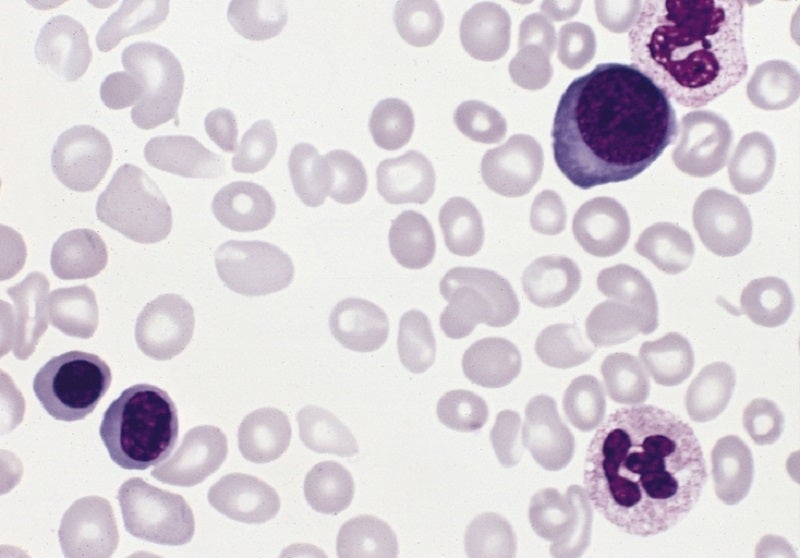
Protagonist Therapeutics has dosed the first patient in a Phase II study evaluating novel hepcidin mimetic PTG-300 for the treatment of patients with polycythemia vera (PV).
PV is a myeloproliferative disorder characterised by the overproduction of red blood cells.

Discover B2B Marketing That Performs
Combine business intelligence and editorial excellence to reach engaged professionals across 36 leading media platforms.
The Phase II clinical proof-of-concept study is expected to enrol about 30 patients. It will monitor the safety profile and obtain preliminary evidence of efficacy in patients requiring phlebotomy.
It comprises a 16-week open-label dose-escalation stage every four weeks from 10mg to 80mg and a 12-week maintenance period at doses that generate desired hematocrit levels followed by a randomised and blinded withdrawal stage for 12 weeks.
The PTG-300 study also has an open-label extension for up to one year to monitor the drug’s long-term safety and benefits.
The study’s endpoints include the measurement of blood parameters, including hematocrit and haemoglobin levels, reductions or delay in phlebotomy requirements, and improvements in quality-of-life symptoms.

US Tariffs are shifting - will you react or anticipate?
Don’t let policy changes catch you off guard. Stay proactive with real-time data and expert analysis.
By GlobalDataProtagonist Therapeutics president and CEO Dinesh Patel said: “In addition to our ongoing study of PTG-300 in patients with beta-thalassemia, we are excited to expand its clinical development with the initiation of this proof-of-concept study in polycythemia vera.
“An important aspect of the mechanism of action of the hepcidin mimetic PTG-300 is to reduce iron availability, which is required to support the excessive erythropoiesis which occurs in PV, thereby potentially enabling PTG-300 to manage this excessive erythropoiesis and ultimately reduce the phlebotomy burden in these patients.”
The injectable hepcidin mimetic PTG-300 has secured Orphan Drug designation in the US and EU.
The US Food and Drug Administration also granted fast-track designation for development in the potential treatment of beta-thalassemia.
In January this year, Protagonist dosed the first patient in a Phase II trial of PTG-300 for the treatment of patients with beta-thalassemia.





